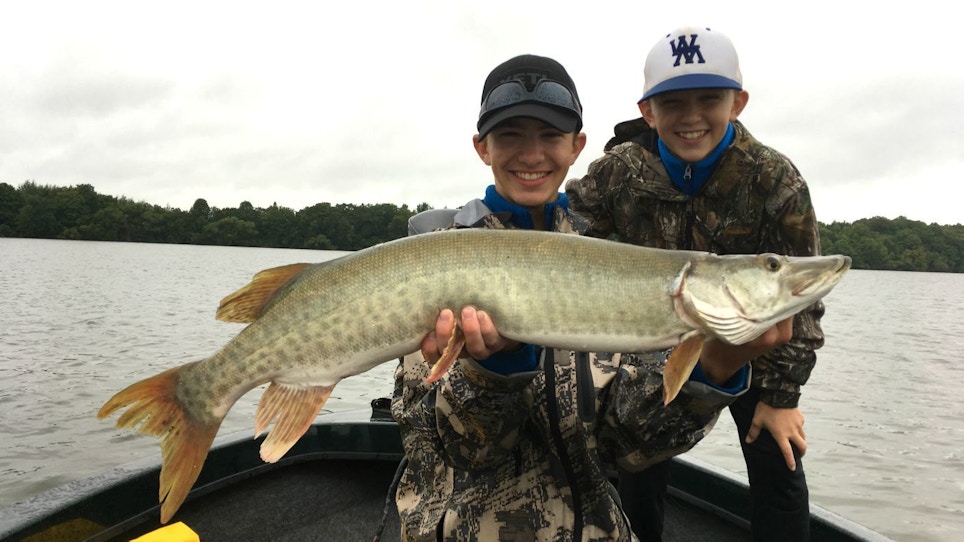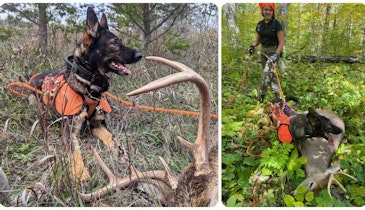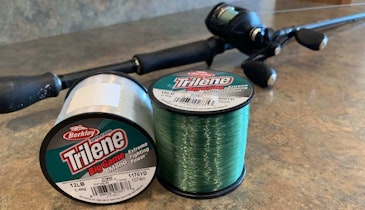Beginning muskie anglers, especially those newcomers who grew up learning how to do everything thanks to YouTube, can quickly become discouraged when they attempt muskie fishing for the first time. You see, they hear the words “Fish of 10,000 Casts” but the warning doesn’t really register in their brains.
No YouTube host is stupid enough to roll video of cast after cast for hours, days or even weeks on end to showcase how difficult muskie fishing can really be. At most you’ll see two or three consecutive casts and retrieves, and then someone in the boat has a muskie follow or strike, correct?
In truth, a day spent muskie fishing is more like big game hunting than fishing. In the same way you hope to see a deer, and maybe get a shot, while muskie fishing you hope to see a muskie (i.e. a follow), and maybe get a strike. Catching a muskie is icing on the cake.
During 2018, I made it a point to introduce my two sons, Luke (13) and Elliott (15), to muskie fishing. Both boys enjoy fishing for anything that’s biting, and Elliott is quite passionate about it. This past spring, summer and fall, Elliott logged in several hundred hours in pursuit of bass, northern pike and panfish, and while he had some tremendous success, it was when he started talking about muskies that I began to do some serious planning.
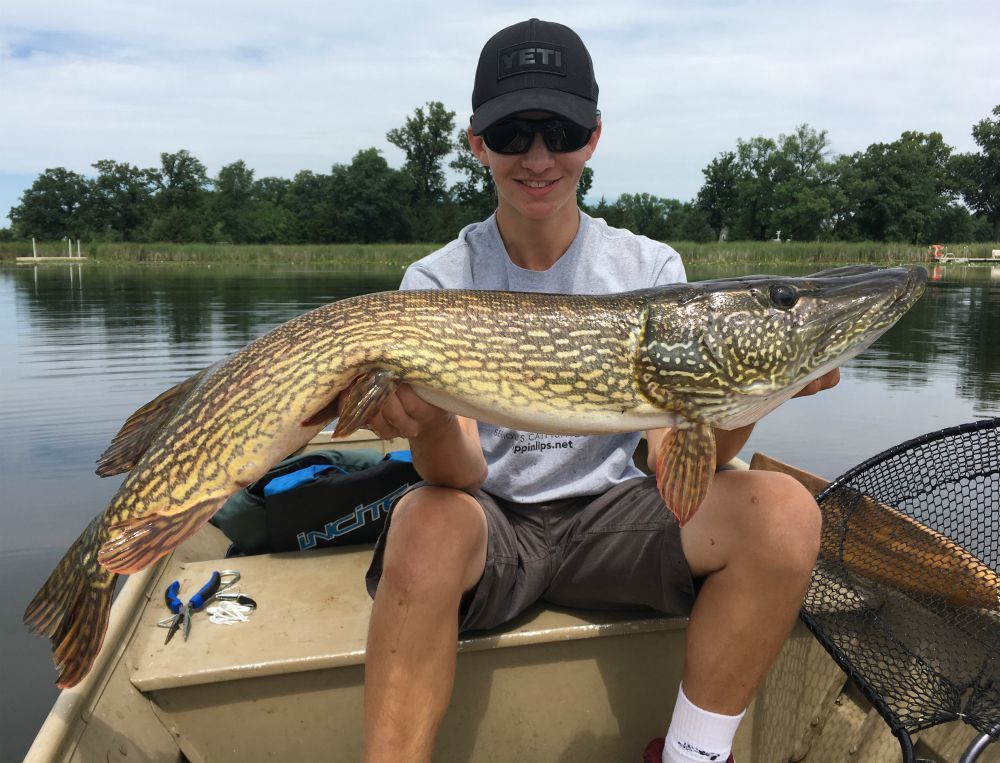
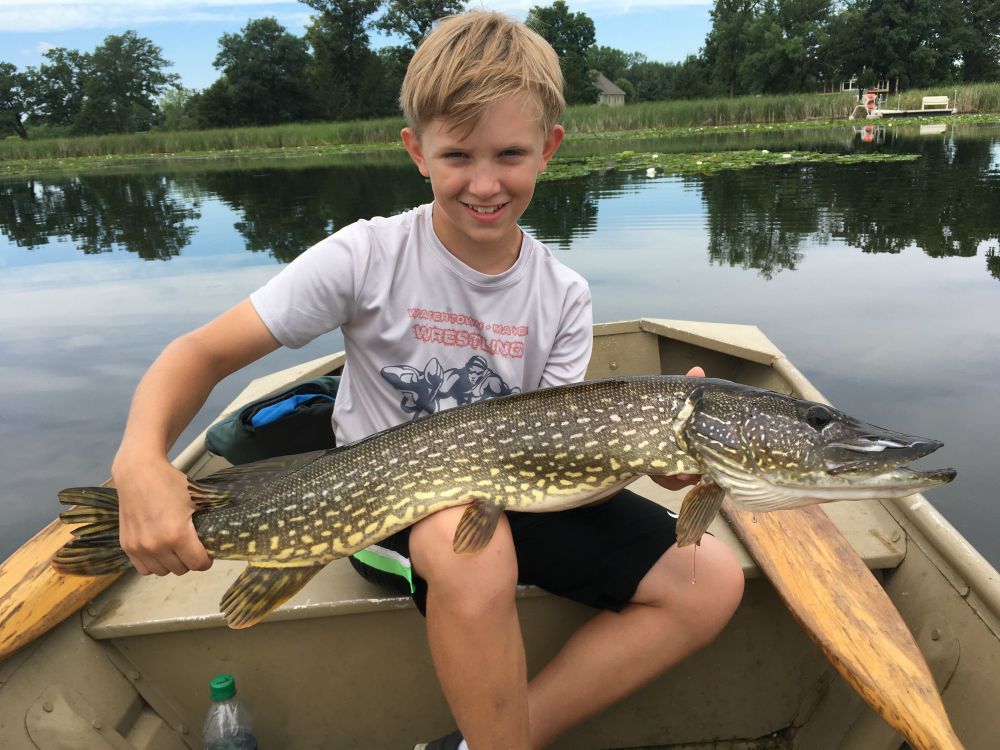
You see, I’m not new to muskie fishing. I was bitten by the bug in the mid-1980s, and through the years I’ve been on muskie excursions throughout Minnesota, Wisconsin and Ontario. I even spent a few years as a fishing guide in northern Minnesota, and muskies were often the target species. But this was long before having kids; I’d been away from the muskie scene for more than 15 years.
I did my best to explain the muskie game/grind to Elliott, and after he convinced me that he was willing to put forth the effort, we penciled in some dedicated days on the calendar. Time would tell if he had what it takes. Then again, maybe he’d be one of the chosen few who experienced success right out of the gate?
Man vs. Muskie
Our first morning and afternoon was spent on famed Leech Lake in northern Minnesota. Because I’d guided a bunch on Leech in the past, I figured it was a good place to start. The weather wasn’t conducive to prime muskie fishing (high skies and relatively calm), but we gave it our best shot. During our 8-hour trip, we had zero follows. Elliott had one boatside strike, but it turned out to be a 5-pound northern pike. I saw one medium-sized muskie porpoise (yes, they do that) 20 yards away while we casted a sunken island, but that was it. Several other muskie hunters were on the water that day, too, and we didn’t see anyone actively figure-8 a following fish, or hook and land one. In other words, it was a typical day of muskie fishing.
The following day we switched it up and went to a “numbers lake,” which means a body of water known more for a high population of muskies than big fish. Keep in mind that “high population” is relative; it still doesn’t mean that muskies are hiding in the shade of every lily pad.
During our 8-hour day (again, high skies and little wind), we had a bit more action. A friend of mine who joined us in the boat had a 38-incher (estimated size) follow his twitch bait, and Elliott had two smaller muskies (3-pounders) nip at his bulging bucktail. Finally, late in the afternoon, Elliott had a 40-inch muskie follow his bait to boatside, and it even hung around a few seconds while Elliott made a figure-8. No strike, but it was sure exciting.
Man vs. Mother Nature
After 2 days dedicated to muskie fishing, Elliott was ready to spend the remainder of our 4-day summertime vacation in pursuit of other gamefish. I liked his decision because with no change in the forecast, I was pretty sure our success on muskies wouldn’t change. The following days we hammered big crappies and some decent-size bass, so the trip was fantastic, even without a hooked muskie.
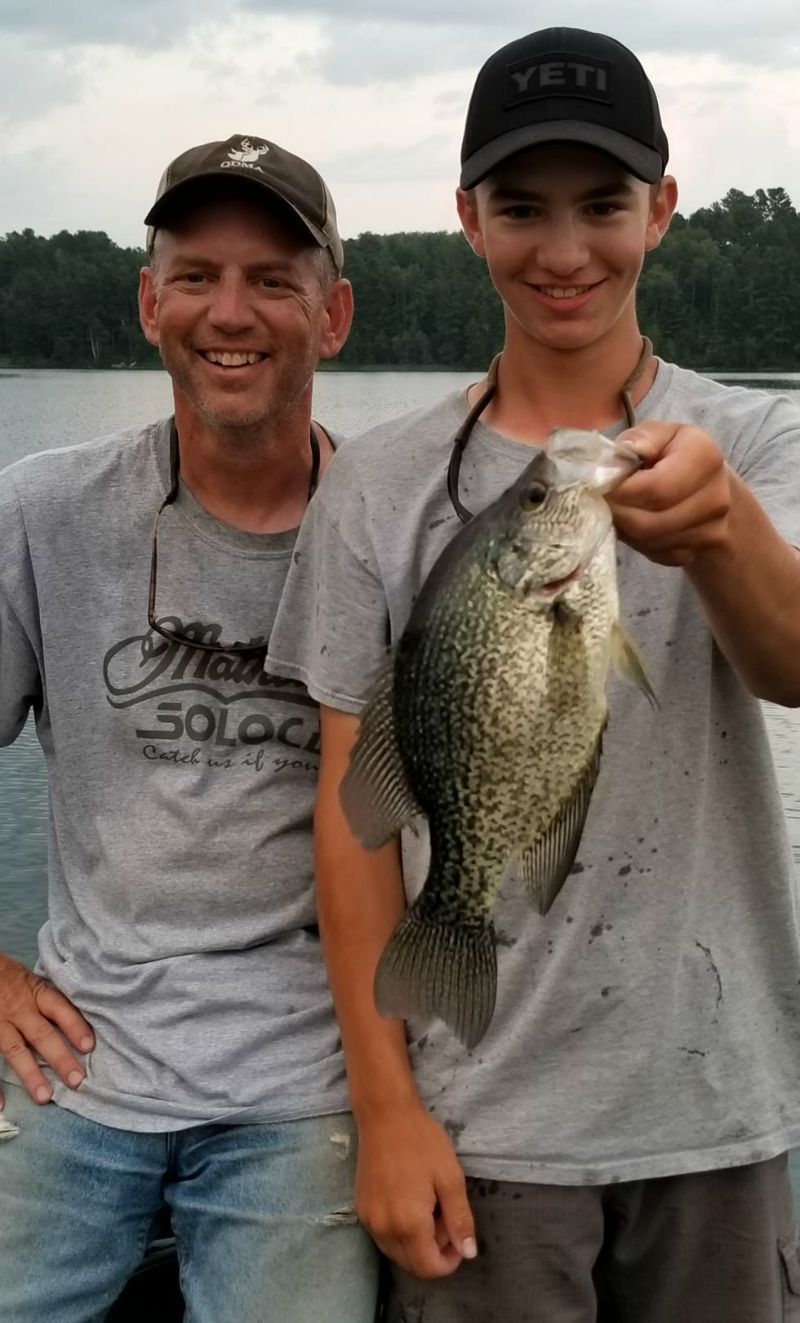
A few weeks after our fishing vacation, I was checking the weather one Friday night and drizzle/rain was forecasted for the following morning, with a small chance for thunderstorms. I wanted Elliott to have a rematch with a muskie, so I convinced him and his brother to join me on a 3-hour tour at a local muskie lake. Neither boy had much confidence in my muskie plan, but I gave them this choice: If you don’t want to go, that’s okay — you can stay home and clean bathrooms and the basement instead. Just like that I had two fishing partners.
After launching the boat, the boys had casted for only 15 minutes before a lightning flash in the distance caused us to head closer to shore “just in case.” As we neared the bank, another lightning strike — this one quite a bit closer — caused us to beach the boat, quickly abandon ship and head into thick hardwoods for cover. It was too risky to race back to the boat launch, and staying on the water was a poor option as well. For the next 90 minutes the boys and I stood standing in the pouring rain and listening to thunder boom all around us. I won’t lie to you; it was a bit scary, and I was feeling like the world’s worst father for bringing them out in this nasty weather.
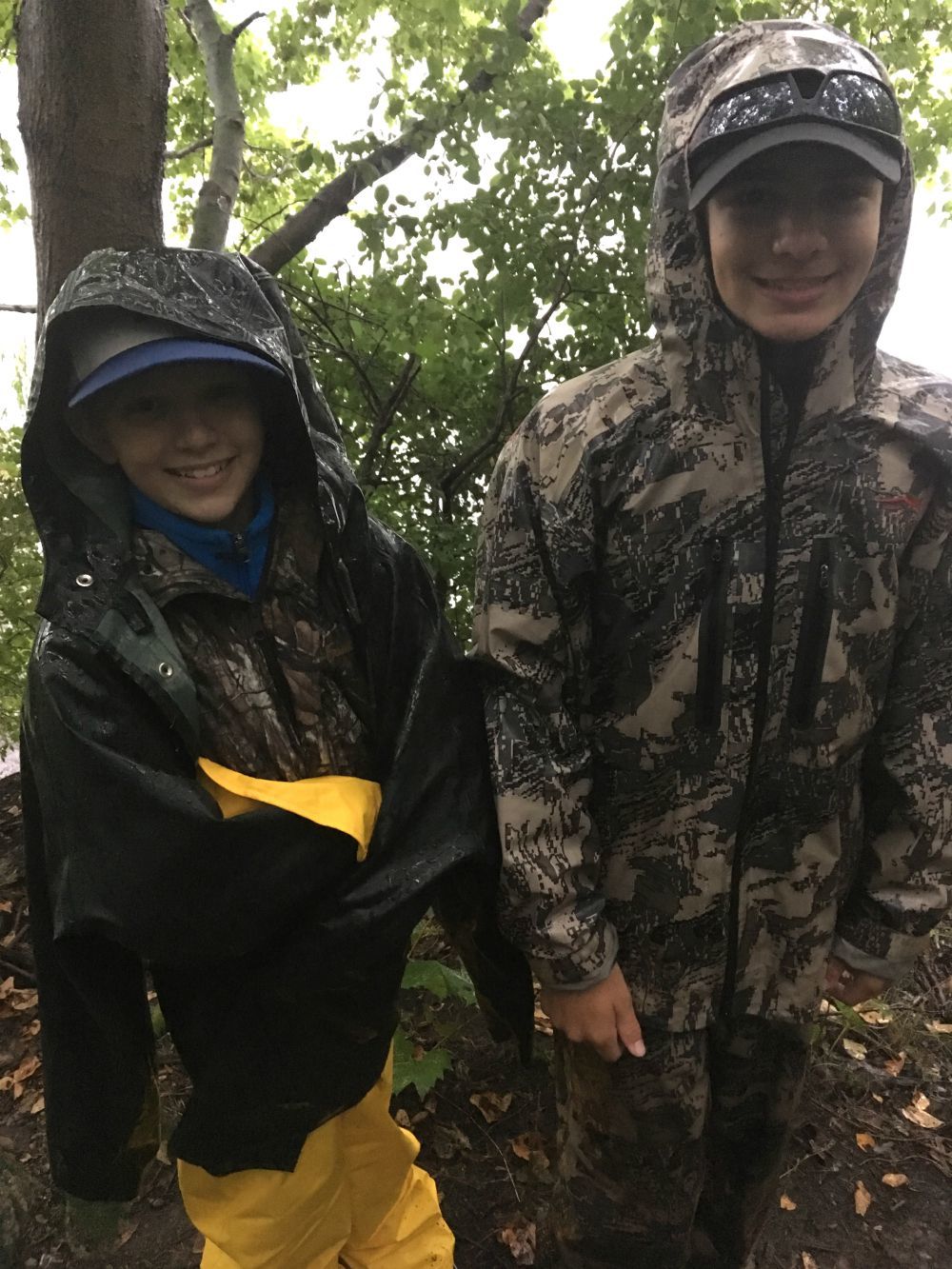
Thankfully, the storm finally passed, and with no other thunderstorms on the radar, we climbed back into the boat and let the bilge pump go to work. With only 90 minutes left to cast (we had team sporting events to attend that afternoon), I headed for my favorite spot, a large sunken island that topped off at 4 feet. Decades earlier, when I used to fish this lake regularly, the hump held the most consistent muskie action.
Elliott was casting a large walk-the-dog style topwater lure and working it with intensity on my favorite muskie rod. We had the lake to ourselves, sky conditions were still rather dark, and I could tell that he was giving it his all. I was a bit skeptical about the lightning/rain we’d just endured — did the muskies feed prior to the storm? — but it was worth a shot.
Luke chose a small, yellow marabou bucktail, something he could cast and retrieve easily with my medium-heavy bass rod. As Luke reeled in his line, he’d turn to talk to me or Elliott, or look up from the water at the retreating storm front.
Shortly after arriving at the sunken island, Elliott had spotted a decent-size muskie surface 25 yards away, so we began a controlled drift toward the spot. Minutes later Elliott had a muskie — I estimated it at 36-38 inches — follow his topwater lure. I tossed out a marker buoy.
We completed our drift, and once the boat was in deep water, I got back on the trolling motor and started working back toward the sunken island. I circled wide of the marker buoy and again planned a controlled drift across the shallowest part of the hump.
“Luke, do you want to change lures for this pass,” I asked.
“No, I’m good,” he replied.
Elliott switched to a 6-inch Grandma (minnow imitation twitch bait) and was again working the water to a froth. Suddenly, he saw a boil 10 yards out from the boat, near where his brother’s line entered the water. “Luke, do you have a fish?!” he yelled.
Luke, now paying a bit more attention, suddenly realized that his rod tip was loading and he set the hook — sort of. Sure enough, Luke was hooked up with something, and a split-second later, probably due to the 4-foot depth, the muskie had nowhere to go but up.
The fat fish shot straight up out of the water, then cartwheeled in the air, crashing back into waves on its back. “Luke, it’s a nice muskie!” Elliott screamed. “Keep the line tight; don’t lose it!”
I could hardly believe my eyes. Here, not 30 minutes into his first true muskie adventure, Luke was going toe-to-tail with the Fish of 10,000 Casts.
Because of Luke’s bass-specific rod, reel and line combo, the fight was longer than many muskie battles, but he eventually wore the fish down just enough for me to slip it into our large landing net. We carefully unhooked the muskie in the water to protect its slime layer, and because we were in the middle of the lake, I didn’t have to worry about drifting into shore. We could savor the moment, take our time, and be gentle with the muskie.
The floor of my boat was still covered in water from the pouring rain, so eventually I lifted the net into the boat and Elliott used his bump board to measure the fish: 38.5 inches. Elliott held the muskie for a few photos, then instructed Luke on proper handling techniques (Elliott has caught several 36- to 41-inch northern pike).
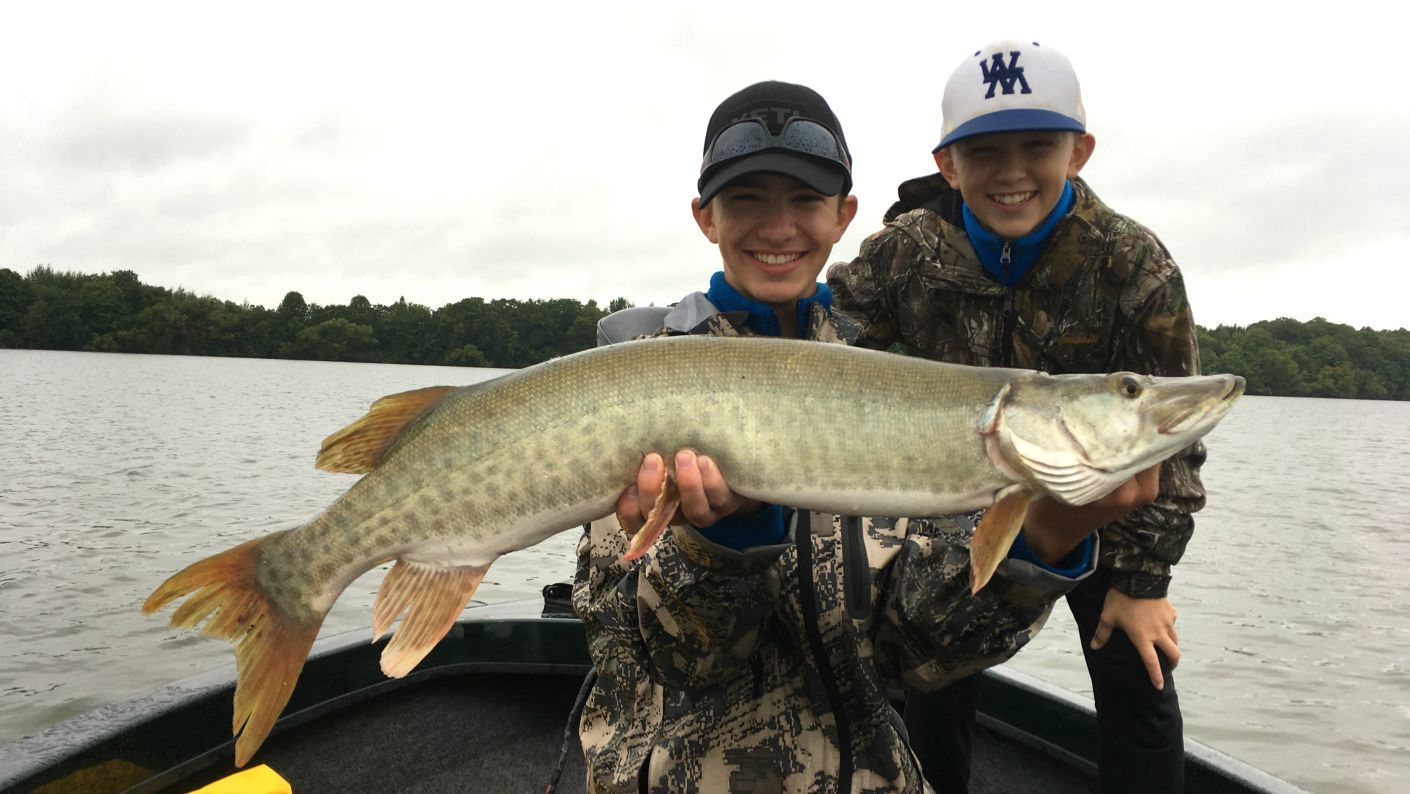
Luke posed for a few pics and then we set the muskie back in the water. He slowly moved the muskie’s tail side to side for 30 seconds before the fish was ready to say goodbye with a burst.
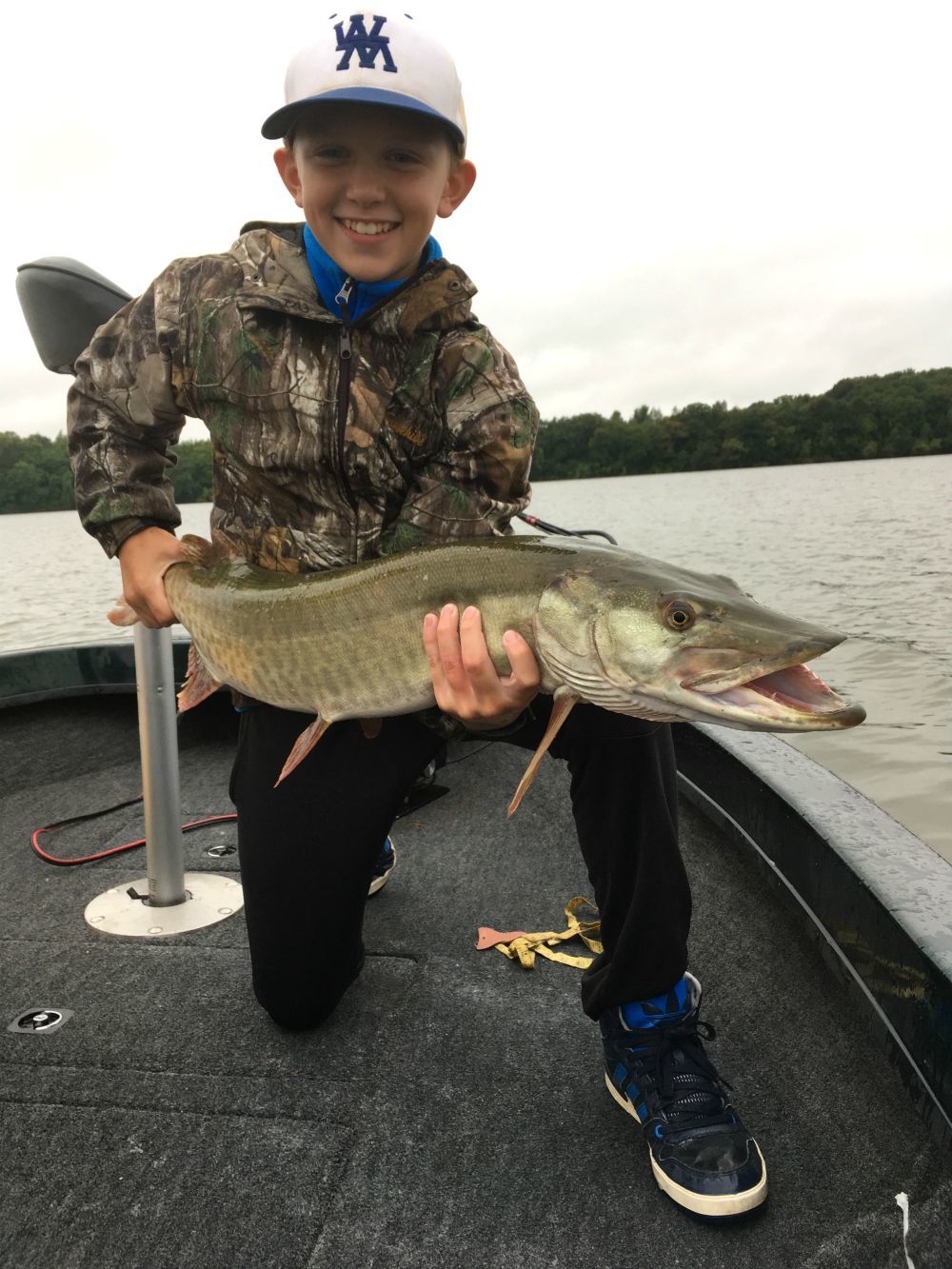
Elliott and I could do nothing but shake our heads and smile at Luke. And to his credit, Luke didn’t boast or say anything to antagonize his older brother, knowing Elliott desperately wanted to catch a muskie.
Elliott’s day would come. (In fact, it arrived during late-October 2018, but I’ll save that story for another article.) The muskie gods had chosen Luke this summer Saturday morning, and it made little sense to question their judgement. We were simply thankful for a safe day on the water, where one youngster learned that sometimes good things happen to those who least expect it.
